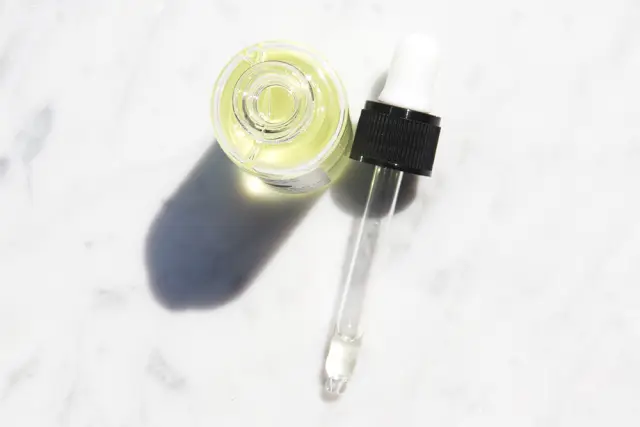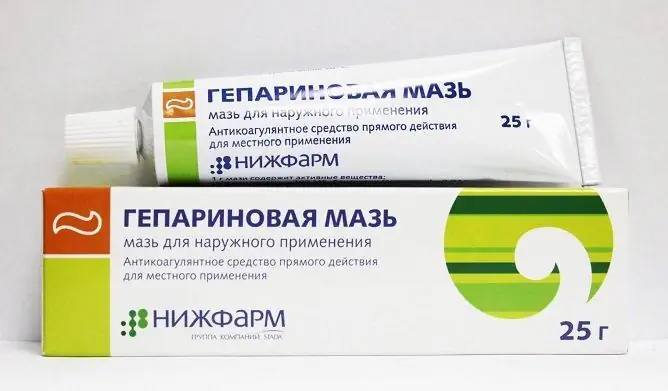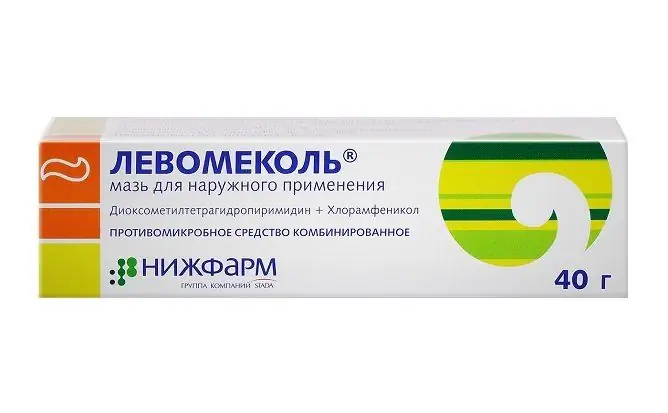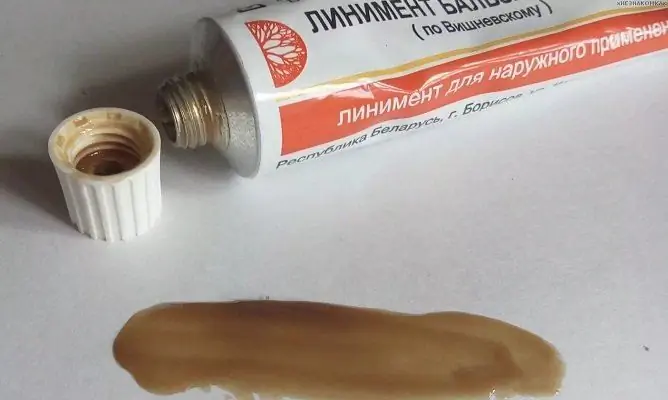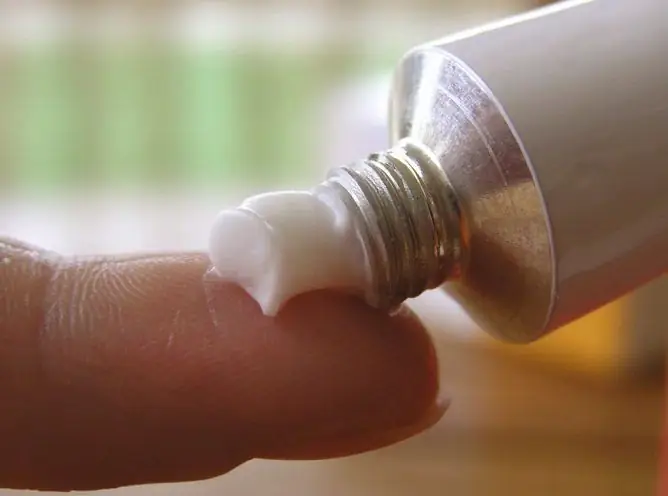- Author Rachel Wainwright wainwright@abchealthonline.com.
- Public 2023-12-15 07:39.
- Last modified 2025-11-02 20:14.
Mycozolone
Mycozolone: instructions for use and reviews
- 1. Release form and composition
- 2. Pharmacological properties
- 3. Indications for use
- 4. Contraindications
- 5. Method of application and dosage
- 6. Side effects
- 7. Overdose
- 8. Special instructions
- 9. Drug interactions
- 10. Analogs
- 11. Terms and conditions of storage
- 12. Terms of dispensing from pharmacies
- 13. Reviews
- 14. Price in pharmacies
Latin name: Mycosolon
ATX code: D07BA
Active ingredient: mazipredon (mazipredone) + miconazole (miconazole)
Manufacturer: Gedeon Richter (Hungary)
Description and photo update: 2019-19-08
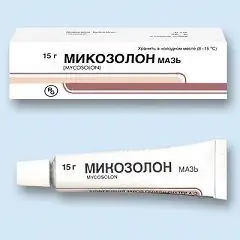
Mycozolone is an external combined drug with antifungal, anti-inflammatory and antibacterial action.
Release form and composition
Dosage form - ointment for external use (15 g in tubes, 1 tube in a cardboard box).
The composition of 1 tube contains active ingredients:
- Miconazole - 20 mg;
- Mazipredon hydrochloride - 2.5 mg.
Auxiliary components: cetostearyl alcohol, methyl parahydroxybenzoate, polysorbate 60, propylene glycol, liquid paraffin, purified water.
Pharmacological properties
The effect of Mycozolon ointment is due to the properties of the active ingredients:
- Mazipredon: has a local anti-inflammatory and anti-allergic effect;
- miconazole: inhibits the development of dermatophytes, fungi of the genus Candida and some, mainly gram-positive, bacteria.
Indications for use
According to the instructions, Mycozolon is prescribed for the treatment of the following diseases:
- Mycoses occurring in combination with superinfection caused by gram-positive bacteria;
- Fungal diseases of nails and skin, occurring with severe itching and inflammation.
Contraindications
- Precancerous diseases and skin tumors;
- Herpetic infection;
- Lupus;
- Natural and chicken pox;
- Hypersensitivity to drug components.
Instructions for use of Mycozolone: method and dosage
Mycozolon ointment is intended for external use.
The recommended dosage regimen, depending on the location of the infection (with a frequency of application 2 times a day):
- Skin infections: the drug is applied in a thin layer to the affected skin;
- Nails: apply as an occlusive dressing after removal of the affected nail segments; therapy is continued continuously until the complete restoration (regeneration) of the nail plate;
- Ears: in the form of a turunda impregnated with a drug, which is inserted into the external auditory canal.
On average, the duration of the course of treatment is from 2 to 5 weeks.
Side effects
No abnormalities were identified during therapy.
Overdose
There is no evidence of an overdose.
special instructions
Before applying the cream to the affected nails, it is recommended to cut them as short as possible.
The therapy should be continued after the rejection of the affected nail, on average - 2-3 months (until complete recovery).
Drug interactions
Information on the interaction of Mycozolone with other drugs is not presented.
Analogs
Analogues of Mycozolone are: Bifon Skin, Bifonal Health, Dermazole Plus, Zalain, Candide, Kandisan, Kanespor, Kanesten, Ketodin, Clotrex, Clotrimazole, Lomexin, Mikogel, Nizoral, Onbet, Ekodax, Econazole.
Terms and conditions of storage
Keep out of reach of children at a temperature of 8-15 ° C.
Shelf life is 2 years.
Terms of dispensing from pharmacies
Dispensed by prescription.
Reviews about Mycozolone
There are few reviews about Mycozolone, because now it is difficult to purchase an ointment. There is no particular need for this, because there are many effective drugs with a similar effect. To choose the most suitable one in each case, it is recommended to contact a specialist.
The price of Mycozolone in pharmacies
The price of Mycozolone is unknown, since the drug is currently not registered in Russia and is not available in pharmacies.
Approximate price for analogues: Clotrimazole (1% gel, cream or ointment, 1 tube of 20 g) - from 23 rubles, Candide (1% cream, 1 tube of 20 g) - from 65 rubles, Canison (1% cream, 1 tube of 20 g) - from 44 rubles.
The question of replacing the drug should be discussed with the doctor.
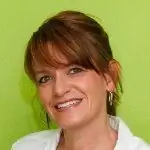
Maria Kulkes Medical journalist About the author
Education: First Moscow State Medical University named after I. M. Sechenov, specialty "General Medicine".
Information about the drug is generalized, provided for informational purposes only and does not replace the official instructions. Self-medication is hazardous to health!

